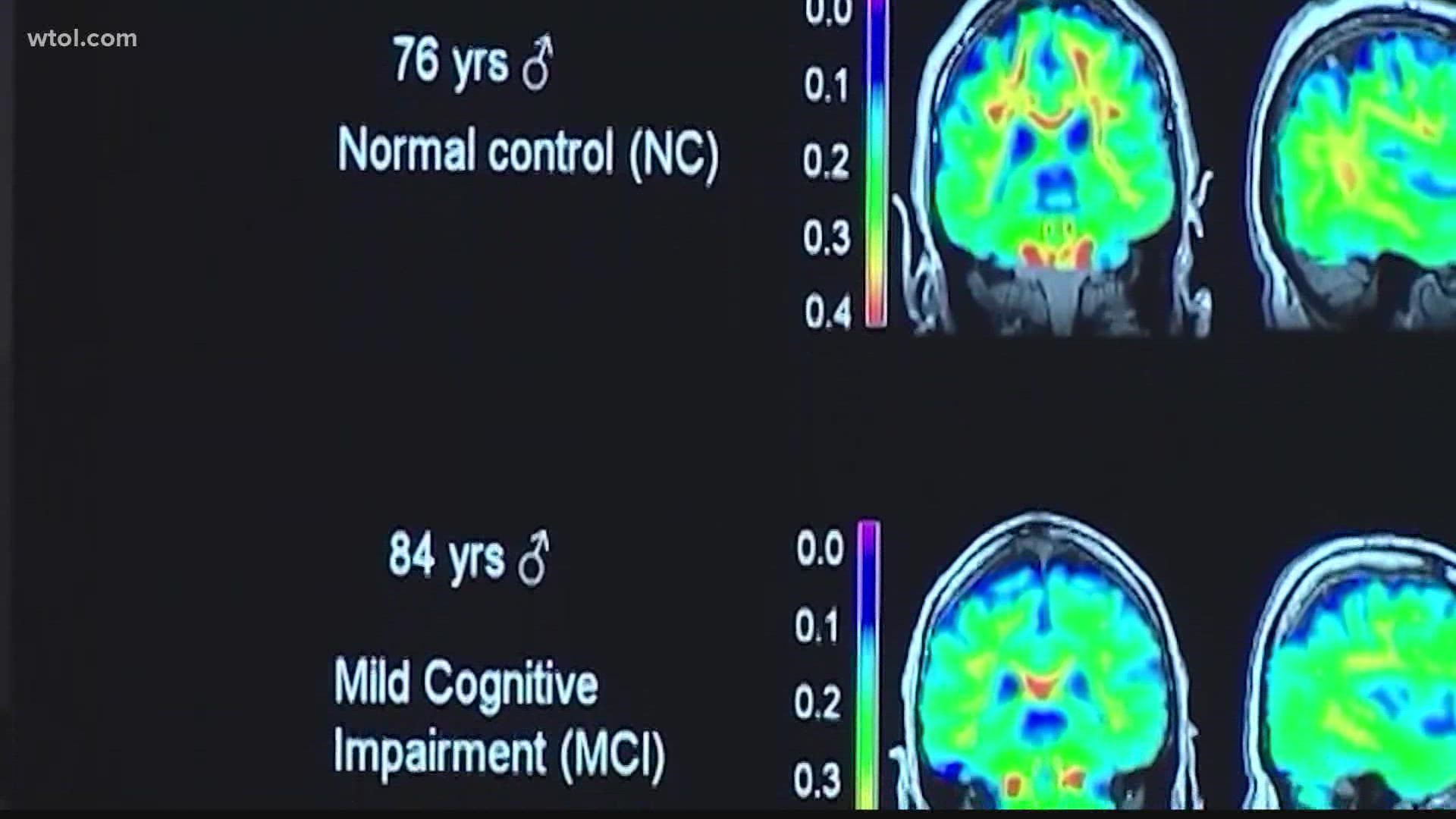TOLEDO, Ohio — The COVID-19 pandemic sparked new conversations about health care disparities that certain communities face.
"Black Americans develop dementia - all the different varieties - more than twice as often as white Americans, and Latino Americans also develop dementia more often - about one and a half times the rate," explained Julia Pechlivanos, executive director of the Alzheimer’s Association Northwest Ohio.
Pechlivanos says this has to do with long-term health care disparities that exist with people of color or people who live in generational poverty. Two-thirds of people with Alzheimer's are women.
Pamela Anderson's family members are some of them. "Several of my mom's first cousins and her aunt, her sister and my brother is currently in a facility," she said. "I'm glad to be there. I'm glad I was chosen to be there and it's very fulfilling for me to be there for my brother and my mom."
Being a caregiver doesn't come without its challenges, though. "Through the process, I found out how critical it is to have support groups, support systems not only for the caregiver, but for the patient," explained Anderson.
In 2020, an estimated 5.8 million Americans were diagnosed with Alzheimer's. This number is projected to nearly triple to 14 million people by 2060.
But there's recently been a major breakthrough for a nasal vaccine aimed at preventing and slowing down the disease. A hospital in Boston is starting Phase 1 of the clinical trial.
Something Dr. Mark Gloth from ProMedica said has been a long time coming.
"This means that we, in our lifetime, that we will see the first survivors. We're going to see the first survivors of Alzheimer's dementia," he explained. "It's overwhelming to the scientific community, but more importantly, it's overwhelming to the families and loved ones of these individuals that have this devastating disease."
It could take up to five years before the nasal vaccine is available.

